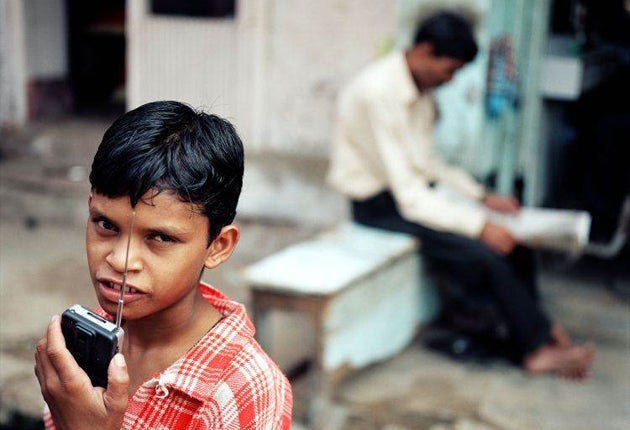Fears that UK will lose influence after huge cuts at World Service

Protests took place outside Bush House, the BBC World Service's London headquarters, yesterday in response to the news that 650 posts and five language services would be lost after a 16 per cent reduction in funding from the Foreign Office.
Peter Horrocks, director of BBC Global News, who announced the cuts to the service's 2,000 staff in an emotional address, said: "I'm very sad to say that we estimate that about 30 million people out of the 180 million who use the World Service every week will lose [it] as a result of these changes."
The five language services to go are Albanian, Macedonian, Serbian, Portuguese for Africa and English for the Caribbean. Radio broadcasts will cease in China, Russia, Ukraine and Turkey and shortwave broadcasts will no longer be made in Hindi.
Commentators said the cuts would reduce Britain's relevance in some of the world's most important markets. "[It] is an unwise move at a time when Britain's influence in the wider world is waning as new actors – China, India, Brazil – emerge," said Daya Thussu, professor of international communication at the University of Westminster. "Such a move will erode the status that the BBC World Service has deservedly acquired over the last half century as the world's most credible and global radio network."
The National Union of Journalists, which organised yesterday's demonstration, said the cuts amounted to a quarter of the service's staff and was disproportionate to the loss of funding. Jeremy Dear, its general secretary, said the service would lose its position as the leading international news provider by audience size as a result.
Mr Horrocks said the impact of the cuts in some regions could be reduced by maintaining contact with audiences through internet and mobile phone-based services. "The best way of having a quality relationship with the audience and also to be cost-effective... is to move towards online services."
In an interview with the BBC he referred to the political prisoner Aung San Suu Kyi, who had listened to the BBC's Burmese service while confined. "That's absolutely being sustained. We are making selections according to what our audiences need and that's a complex picture across the world." Asked if he had been angry at the size of the cuts, he said: "I don't know whether I was angry, I'm certainly passionate about it. Kofi Annan once described the World Service as Britain's greatest gift to the world. We fought as hard as we possibly could."
The cuts were approved by the BBC Trust, whose chairman, Sir Michael Lyons, said: "We want to ensure [the World Service] continues to be the most authoritative, quality broadcaster of news and information around the world. But we have no choice other than to live within the reduced government grant."
Correspondence released yesterday included a letter to Sir Michael from William Hague, the Foreign Secretary, who blamed the cuts on "the fiscal legacy left to us by the previous administration". Harriet Harman, shadow International Development Secretary, said the service urged the Government to think again about forcing the BBC to make the cuts which will "hurt developing countries".
The cuts in numbers
5 services are to close: Albanian, Macedonian, Portuguese for Africa, English for the Caribbean and Serbian.
25 per cent of the World Service's 2,400 staff are set to lose their jobs.
480 of the jobs will go over the next year, with savings amounting to £46m a year by 2014.
Subscribe to Independent Premium to bookmark this article
Want to bookmark your favourite articles and stories to read or reference later? Start your Independent Premium subscription today.

Join our commenting forum
Join thought-provoking conversations, follow other Independent readers and see their replies